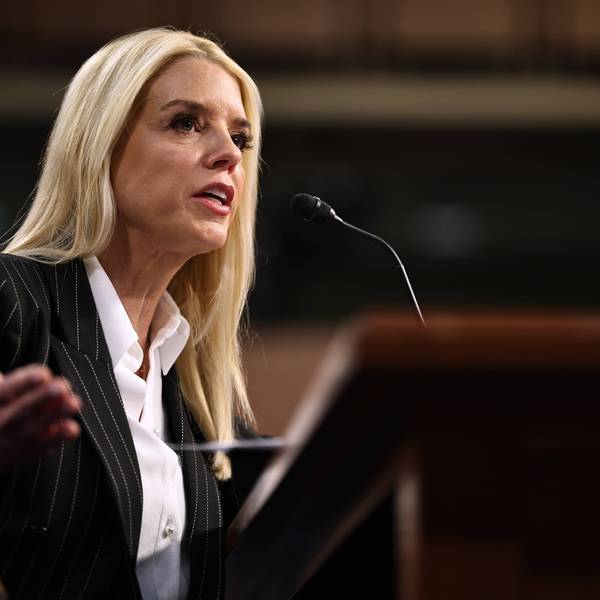DeVos' world gets stranger by the day.
After hearing from rape victims, DeVos and her top civil rights official have decided to champion the rights of those accused of raping the women.
The New York Times calls this "a new look" at the issue of campus rape.
Indeed.
The letters have come in to her office by the hundreds, heartfelt missives from college students, mostly men, who had been accused of rape or sexual assault. Some had lost scholarships. Some had been expelled. A mother stumbled upon her son trying to take his own life, recalled Candice E. Jackson, the top civil rights official at the Department of Education.
"Listening to her talk about walking in and finding him in the middle of trying to kill himself because his life and his future were gone, and he was forever branded a rapist -- that's haunting," said Ms. Jackson, describing a meeting with the mother of a young man who had been accused of sexual assault three months after his first sexual encounter.
The young man, who maintained he was innocent, had hoped to become a doctor.
In recent years, on campus after campus, from the University of Virginia to Columbia University, from Duke to Stanford, higher education has been roiled by high-profile cases of sexual assault accusations. Now Education Secretary Betsy DeVos is stepping into that maelstrom. On Thursday, she will meet in private with women who say they were assaulted, accused students and their families, advocates for both sides and higher education officials, the first step in a contentious effort to re-examine policies of President Barack Obama, who made expansive use of his powers to investigate the way universities and colleges handle sexual violence.
How university and college administrations have dealt with campus sexual misconduct charges has become one of the most volatile issues in higher education, with many women saying higher education leaders have not taken their trauma seriously. But the Obama administration's response sparked a backlash, not just from the accused and their families but from well-regarded law school professors who say new rules went too far.
In an interview previewing her plans, Ms. Jackson, who heads the Education Department's Office for Civil Rights and organized Thursday's sessions, made clear that she believes investigations under the 1972 law known as Title IX have gone deeply awry. A sexual assault survivor herself, she said she sees "a red flag that something's not quite right" -- and that the rights of accused students have too often been ignored.
The alleged perpetrators of rape, it seems to Candace Jackson, are the real victims.
What a strange new mission for the Office for Civil Rights.




